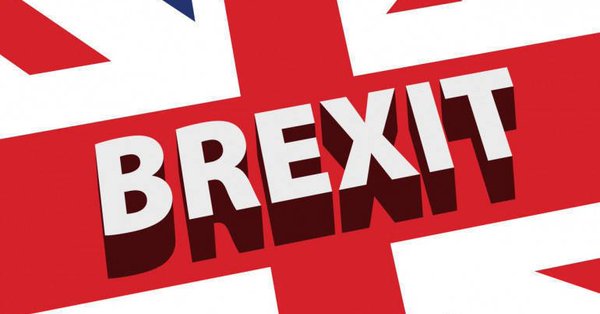Brexit parliamentary debate begins as uncertainty shoots up

- Country:
- United Kingdom
British MPs will on Wednesday begin five days of debate ahead of a historic delayed vote on Prime Minister Theresa May's Brexit deal, a day after giving her a stinging blow aimed at preventing Britain from crashing out of the bloc with no agreement. Lawmakers will vote next Tuesday on the agreement that May has negotiated with the EU over the last 18 months, which faces daunting opposition as the clock ticks down before Britain leaves the European Union.
The prime minister has warned rebels in her own party that defeat will lead to a no-deal Brexit or no departure from the bloc at all. But in a major setback Tuesday that presages likely defeat in next week's vote, MPs approved an amendment that will curtail the government's tax powers in case of a no-deal Brexit. David Lidington, May's effective deputy, called the House of Commons defeat "inconvenient" yet ineffectual and insisted the government remained focused on winning approval for the prime minister's plan.
"We are focused on getting any possible vote in favour of the PM's deal," he told BBC radio. "I don't think the British public are served by fantasies about magical alternative deals. "The choice the people have is this deal or no deal, or -- as some MPs advocate -- to reverse the 2016 referendum entirely." However, ardent Brexit supporters who favour a clean break when Britain is scheduled to leave the EU on March 29 look set to rebel over fears the draft divorce deal could lead to some kind of customs union with the bloc.
The prime minister has already pulled the vote once with defeat looming, and a loss for the government would plunge Britain into "uncharted territory", according to May. She is still seeking assurances from the EU on the most controversial elements of the Brexit deal relating to Northern Ireland, in a bid to convince critics to back the agreement. These assurances are set to be delivered to lawmakers before they vote, although not before they start their debate on Wednesday.
"The work to secure those assurances is ongoing. I think what's important is that if we are to secure assurances, MPs are aware of what they are before the vote takes place," a Downing Street spokesman said. The government has recently made much-publicised preparations for leaving without a deal, regardless of whether May's deal is approved, drawing ire from MPs who insist no deal must be ruled out. A cross-party group of 209 lawmakers sent the prime minister a letter Sunday urging her "to agree to a mechanism that would ensure a 'no-deal' Brexit could not take place".
Some MPs would be in favour of a second referendum but such a move would likely cause outrage among Brexit voters and raise the issue of the framing of the question. A PR battle has reached fever pitch as the deadline looms, with second referendum campaigners setting up stalls at markets nationwide, while Brexiteers are also touring the country pushing for a clean break. May insists Britain will leave the EU in March whatever happens, but there is the growing talk of delaying the two-year Article 50 exit process to give her some breathing space to get her deal agreed.
An EU diplomat told AFP on Tuesday that "we are convinced that Theresa May will request a postponement after the agreement is rejected in the British parliament." Brexit Secretary Stephen Barclay denied reports about a possible delay, saying "there are people in the European Union who are discussing this issue, but that is not the position of the UK government." The prime minister survived a half-hearted attempt by her party to oust her before Christmas, but the level of rebellion has left her weakened.
The key sticking point is the deal's so-called backstop solution, which proposes some kind of customs union to prevent a hard border between the British province of Northern Ireland and the Republic of Ireland. Brexit supporters are worried that there is no mechanism for Britain to unilaterally withdraw, meaning it could end up indefinitely stuck in the union, hampering its ability to strike deals with the rest of the world.
(With inputs from agencies.)
ALSO READ
Indonesia's 2024 fiscal deficit will not exceed 2.8% of GDP, chief econ minister says
German defence minister wary of doubling structures on Ukraine NATO fund
Bengal Education Minister trying to spoil my relation with CM Mamata Banerjee: Guv Bose
FOCUS-US employment boom leaves factory workers behind
Rahul Gandhi ashamed of IUML support, hence its flags absent in roadshow:Union Minister Irani










